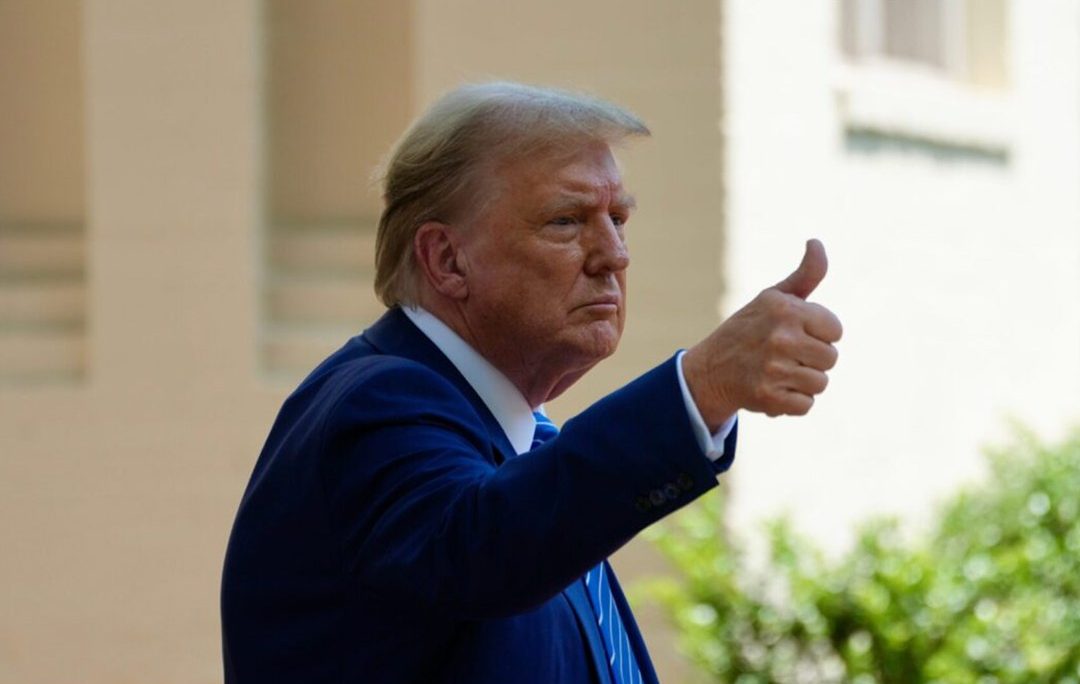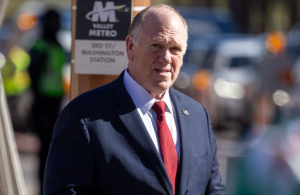NOTE: VIDEO at the end of the article.
The Trump administration recently submitted a rescission proposal to the United States Congress seeking to cancel approximately $9.4 billion in previously appropriated federal funds. This package primarily targets foreign aid programs and funding for the Corporation for Public Broadcasting (CPB).
This rescission request is part of the executive branch’s effort to reduce federal spending by reclaiming unspent or allocated funds that the administration considers less aligned with national priorities. The proposal is now under congressional consideration.
What Is a Rescission?
A rescission is a formal request by the president to cancel previously approved budget authority. The process is governed by the Impoundment Control Act of 1974, which requires Congress to approve the rescission for the funds to be canceled legally. If Congress does not act within 45 legislative days, the funds remain available for obligation.
Presidents sometimes use rescissions to propose fiscal discipline by eliminating funding that is no longer deemed necessary or appropriate. However, large-scale rescission proposals are uncommon and typically face significant congressional scrutiny.
Details of the Proposed Cuts
The $9.4 billion rescission package contains two main components:
1. Cuts to the Corporation for Public Broadcasting (CPB):
The administration proposes to rescind approximately $1.1 billion in funding for CPB. This federal agency distributes funds to public television and radio stations across the United States, supporting outlets like PBS and NPR affiliates. CPB funding aims to provide educational content, local news, cultural programming, and emergency communications, particularly benefiting rural and underserved communities.
Federal funding accounts for a portion of CPB’s overall budget; the agency also receives private donations, state funds, and corporate underwriting. The administration argues for reducing federal subsidies in favor of alternative funding models.
2. Cuts to Foreign Aid Programs:
The proposal also seeks to rescind approximately $8.3 billion in funds allocated for foreign aid. These programs are managed primarily by the U.S. Agency for International Development (USAID) and related international development agencies. Foreign aid funds support a wide range of initiatives, including:
-
Global health programs, such as HIV/AIDS treatment and malaria prevention.
-
Humanitarian assistance in response to natural disasters and conflicts.
-
Economic development projects aimed at reducing poverty.
-
Support for democratic governance and civil society in developing countries.
Foreign aid has historically been viewed by the U.S. government both as a tool for humanitarian assistance and as a means of advancing U.S. foreign policy interests.
Historical Context
The Trump administration has repeatedly expressed skepticism about the size and scope of federal spending on foreign aid and public broadcasting. During President Trump’s first term (2017–2021), the administration proposed significant cuts to CPB funding and requested reductions to foreign aid budgets. While Congress did not fully adopt all of these proposed cuts, these issues have remained priorities for the administration.
Rescission requests provide a formal mechanism to reduce spending without requiring a new appropriations bill, but they still depend on congressional approval.
Congressional Process and Outlook
After the president submits a rescission package, the House and Senate Appropriations Committees review the proposal. Congress can:
-
Approve the rescissions as requested by the president.
-
Modify the rescissions by reducing or increasing the amount.
-
Reject the rescissions entirely.
If Congress rejects the rescissions, the funds remain available to be spent as originally appropriated.
The political composition of Congress significantly influences the outcome of rescission proposals. Supporters of spending cuts often come from fiscal conservative factions, while those favoring continued funding include members who prioritize public broadcasting services, foreign aid programs, or constituent interests.
Arguments for and Against the Rescissions
Supporters of the rescission package argue that reducing federal funding for CPB aligns with a belief that public broadcasting should rely less on taxpayer dollars and more on private support. They also maintain that some foreign aid programs lack sufficient oversight or do not directly benefit U.S. strategic interests.
They emphasize fiscal responsibility and the need to prioritize domestic spending and debt reduction.
Opponents of the rescission package caution that cutting funds for public broadcasting could reduce access to vital educational and emergency information, particularly in rural areas. Public media supporters also point out CPB’s role in maintaining diverse media voices.
Regarding foreign aid, many experts argue that these programs promote U.S. national security by fostering global stability, countering extremism, and building partnerships. Humanitarian groups stress the moral imperative of continuing assistance to vulnerable populations worldwide.
Broader Implications
The proposed rescissions reflect ongoing debates about the federal budget’s priorities. They raise important questions about the role of government in media and international affairs.
Some analysts warn that deep cuts in foreign aid could reduce U.S. influence internationally, potentially ceding ground to other countries investing heavily in global development.
Meanwhile, the future of public broadcasting funding remains uncertain, as technology and media consumption habits evolve.
What Happens Next?
The rescission package will be discussed and debated in Congress over the coming weeks. Hearings may be held to examine the potential impacts of the proposed funding reductions.
Ultimately, Congress’s decision will determine whether these funds are rescinded or remain available for use in the current fiscal year.
Fact Check Section
| Claim | Status | Explanation |
|---|---|---|
| President Trump submitted a rescission package of $9.4 billion to Congress. | True | The Office of Management and Budget confirmed the submission of the rescission request. |
| The rescission includes $1.1 billion in cuts to the Corporation for Public Broadcasting. | True | This amount targets federal funding for CPB. |
| The rescission includes $8.3 billion in cuts to foreign aid programs. | True | These funds affect programs managed by USAID and other agencies. |
| Rescissions are a common tool used every year by presidents. | Partially True | Presidents can request rescissions, but large-scale rescissions are relatively rare and often face congressional resistance. |









